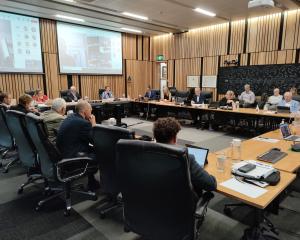
Their feedback comes as concern mounts that the government will introduce a bill to make the reform mandatory for all 67 councils throughout New Zealand, instead of an option being available to opt out.
The councils, through letters to provide feedback on the reforms, say they will not agree to transfer any water, wastewater or stormwater assets to any other entity without first undertaking a full formal consultation, under the Local Government Act provisions, with their communities.
They were also concerned about the importance of local decision-making, the Government acting contrary to the principles of the Local Government Act, and the financial implications of the reforms that could see the costs for water services being spread over a very large area encompassing a large number of district councils, with the possibility of some communities substantially subsidising others.
Both called on the government to slow the reform programme so councils could gather all the information necessary to adequately inform their communities of the reform’s affects.
Christchurch city councillors also rejected the proposed reform last week - and will write to Mahuta to ask her to hit pause on the "flawed" plan.
The proposed reform would see drinking water, wastewater and stormwater infrastructure transferred from councils around New Zealand to four new independent entities. The South Island, which has 21 local authorities, would come under one entity.
Hurunui District Council approved its feedback to the government unanimously, saying the reforms are not well designed, are too light on detail, and do not put customers at the heart of the services.
The council is critical of the governance model, saying it is not fit for purpose as it has the effect of distancing the accountability of the entities from their customers.
"Delivery of three waters is a service, it is not an exercise in asset management or accounting. Services have customers, and the best services are those that are most directly connected to their customers," its feedback letter says.
The council says for its district the financial model of the reforms did not reflect the reality on the ground, and it was concerned about the implication for rural water and the lack of definition around stormwater.
It was also critical of the government’s advertising campaign.
"The public advertising campaign for the three waters reform has landed very badly with our largely rural communities. They found the campaign condescending and light on facts," the council letter said.
"The monies invested in the advertising campaign, in our view, would have been much better spent if officials had publicly explained their proposals rather than rely on public relations spin.
"We would respectfully suggested that there is a considerable amount of work to be done by the government if you wish to take the public of this district with you on the reform process."
The council is calling on the Government to work directly with communities to help them understand any proposed reform, and to clearly define it.
It says after having conversations with its communities, it has resolved to under take full consultation with them about the future of Three Waters service delivery if the Government proceeded with its proposal.
It will use the 'special consultative procedure' set out in the Local Government Act for future decision-making.
Hurunui Mayor Marie Black urged the Government to pause and recognise the role of local government.
"Local government has a critical role as the voice of the people and has to be heard," she said.
If the reforms go ahead the three North Canterbury councils will become part of an entity covering most of the South Island.
Kaikoura District Council also expressed concerns to the minister about socialising the cost of upgrading assets and complying with water standards and resource consent conditions.
The council says this would lead to a "mixture of councils who are financial winners and losers".
Kaikoura says councils are tasked with ensuring the well-being and best interests of its district, not the region or nation, making it difficult to agree on an arrangement in which they would be subsidising other communities outside their district.
Initial feedback from the Kaikoura community showed 95 per cent of the 200 respondents wanted to retain their say and local influence in respect of how local services are provided.
Community views about the importance if improving health and environmental standards were much more variable, with 50 per cent recognising improvements were relatively important, but only about 25 per cent were willing to pay to achieve this.
A total of 76 per cent were not comfortable with the possibility of costs being spread over a wide area with some communities substantially subsiding others.
Waimakariri District Council earlier this week voted to opt out of the reforms.














